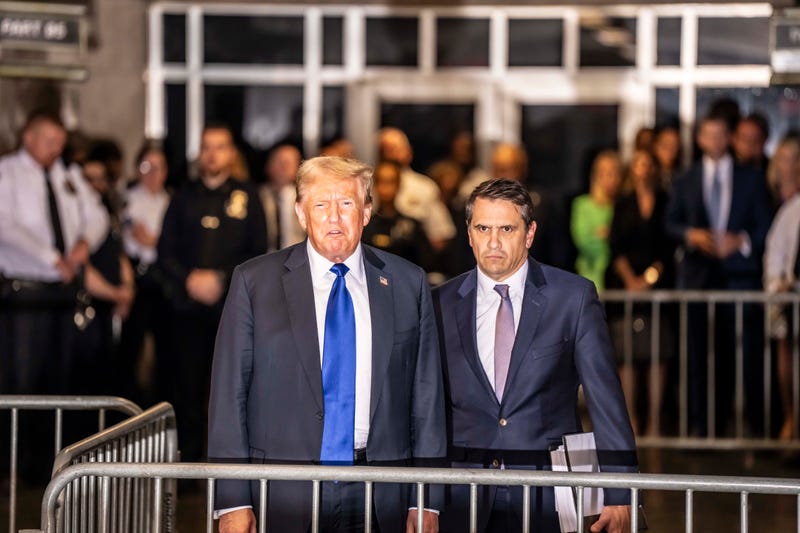
PHILADELPHIA (KYW Newsradio) — With a guilty verdict on all 34 counts against him in his historic criminal hush money trial, Donald Trump awaits sentencing. But a local legal expert says sentencing likely won’t be the end of this case.
“We had a trial in which, really, every attempt was made to give Donald Trump the benefit of the doubt,” said Claire Finkelstein, professor of law at the University of Pennsylvania and director of the Center for Ethics and the Rule of Law.
Finkelstein says she followed the case closely.
“He repeatedly violated the judge's orders. He repeatedly violated the gag orders, which were reasonable, that had been placed on him — given that he threatened the judge on a regular basis, that he refused to abide by the protocol and the decorum of the courtroom, that he threatened jurors, that he did his best to intimidate everyone who was involved in the process,” she said.
“At every step of the way, he was doing his best to obstruct the process, to interfere with the process. And I really expected that might have more payout for him, that there might be a hung jury, that the jurors might be too afraid of finding him guilty.”
Finkelstein says the prosecutors laid out their case cleanly, and the testimony of both former adult film performer Stormy Daniels and Trump’s former fixer Michael Cohen was key.
“And I think the jury just followed the evidence.”
Each of the counts against Trump carries a maximum sentence of four years in prison. For a former president, the prospect of prison and personal protection raises a lot of questions.
“We have heard reporting that his security detail has been briefed and has been in touch with prison authorities. It is a possible result from this trial that prison time would emerge as a possible sentence,” she said.
However, Trump could receive probation, home confinement or simply fines.
“There's no question, it's not a level playing field. I think anybody else with this guilty verdict would almost certainly get prison time and not just have to pay a fine.”
However, Finkelstein said, Trump’s sentencing on July 11 likely will not be the end.
“We know that Trump will appeal, just because he always runs all of his legal options to the end result — and because we know that he's looking for delay,” she said.
“Trump's lawyers on appeal will not be able to say anything that calls into question the factual findings of the trial jury, they will only be able to raise objections to, for example, decisions to allow a certain witness.”
Finkelstein says it’s actually hard to know what Trump’s appeal would be based on. She said Judge Juan Merchan presided over a very careful trial.
“I think Judge Merchan did an excellent job of, really, protecting against the possibility of such an appeal undermining the ultimate verdict, because there may not be really much to appeal that could have produced a different outcome.”
Finkelstein says she thinks the New York case is a breakthrough and, as the system methodically reinforces the veracity of the case, people will be swayed.
